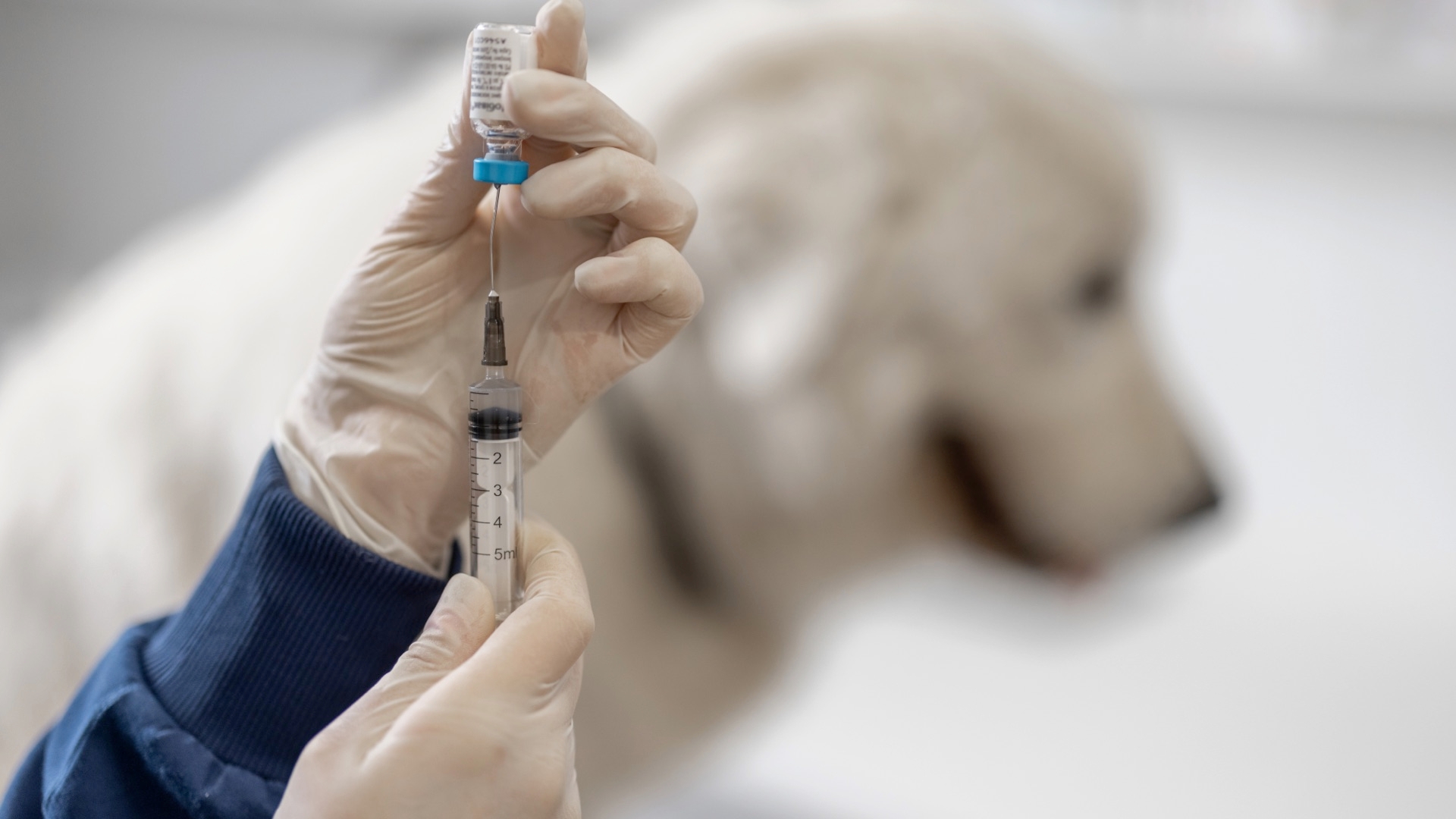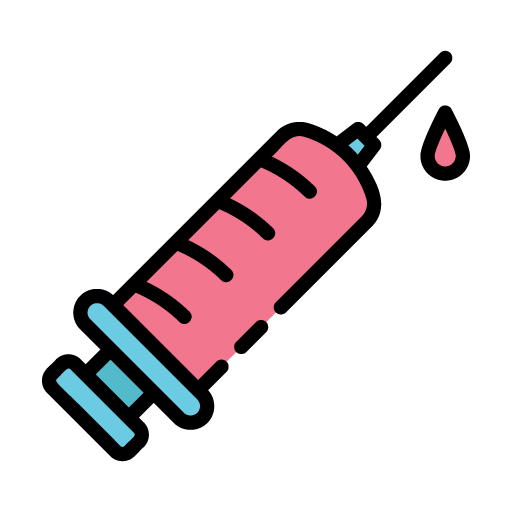Rabies:
Summary:
Rabies is a fatal but preventable viral disease. It can spread to people and pets if they are bitten or scratched by a rabid animal. In the United States, rabies is mostly found in wild animals like bats, raccoons, skunks, and foxes. However, in many other countries dogs still carry rabies, and most rabies deaths in people around the world are caused by dog bites.
Every year, thousands of people around the world die from rabies. Rabies is a rare disease in the United States, but it's almost always deadly. The good news is that this disease is preventable with the rabies vaccine.
The rabies virus infects the central nervous system. If a person does not receive the appropriate medical care after a potential rabies exposure, the virus can cause disease in the brain, ultimately resulting in death. Rabies can be prevented by vaccinating pets, staying away from wildlife, and seeking medical care after potential exposures before symptoms start.
The rabies vaccine is given to people who are at higher risk of coming in contact with rabies — like veterinarians. It's also given to people after an animal bite if the animal could have rabies.
When should I seek medical attention?
If you've been in contact with any wildlife or unfamiliar animals, particularly if you've been bitten or scratched, you should talk with a healthcare or public health professional to determine your risk for rabies or other illnesses. Wash any wounds immediately with soap and water and then plan to see a healthcare provider. (It's important to know that, unlike most other animals that carry rabies, many types of bats have very small teeth which may leave marks that disappear quickly. If you are unsure, seek medical advice to be safe.)
Remember that rabies is a medical urgency but not an emergency. Decisions should not be delayed.
See your doctor for attention for any trauma due to an animal attack before considering the need for rabies vaccination. After any wounds have been addressed, your doctor – possibly in consultation with your state or local health department – will help you decide if you need treatment known as rabies post-exposure prophylaxis (PEP). Decisions to start PEP will be based on your type of exposure, the animal you were exposed to, whether the animal is available for testing, and laboratory and surveillance information for the geographic area where the exposure occurred.
In the United States, PEP consists of a regimen of one dose of immune globulin and four doses of rabies vaccine over a 14-day period. Rabies immune globulin and the first dose of rabies vaccine should be given by your health care provider as soon as possible after exposure. Current vaccines are relatively painless and are given in your arm like a flu or tetanus vaccine; rabies vaccines are not given in the stomach.
Frequently Asked Questions
Why is the rabies vaccine important?
Though it's rare in the United States, people who get rabies almost always die. In the United States people are most likely to get rabies from wild animals. Rabies is more common in other countries.
If you've been bitten by an animal that could have rabies, or are at risk of coming in contact with rabies, it's very important to get the vaccine.
What is rabies?
Rabies is caused by a virus that can be passed to humans through the bite of a rabid animal (an animal who has it). People in the United States are most likely to get rabies from wild animals, especially bats. Animals like raccoons, skunks, and foxes may also spread rabies. It's also possible to get rabies from pets, like dogs and cats, that haven't been vaccinated. In countries where rabies is still common, people often get it through the bite of a rabid dog.
Rabies doesn't generally spread from person to person — though very rarely, it could spread from one person to another during an organ transplant.
Early symptoms of rabies include:
- Weakness
- Fever
- Headache
As the disease gets worse, rabies can cause:
- Trouble sleeping
- Feeling confused
- Anxiety and agitation (feeling nervous, worried, or upset)
- Seizures (sudden, unusal movements or behavior)
- Hallucinations (seeing things that aren't there)
- Hydrophobia (fear of water)
Once a person shows symptoms of rabies, they almost always die. Learn more about rabies.
Who needs to get the rabies vaccine?
People at risk of rabies
The rabies vaccine is recommended for people at high risk of coming in contact with rabies. For example, you may need the rabies vaccine if you:
- Work as a veterinarian or animal handler
- Are a veterinary student
- Study or explore caves
- Study the rabies virus
- Are traveling to other countries where rabies is common
The vaccine is given in 3 doses. The second dose is given 7 days after the first dose, followed by a third dose 21 or 28 days after the first.
Vaccination after an animal bite
If you're bitten by an animal that could have rabies, you can get the rabies vaccine to keep you from developing the disease. A doctor can help decide if you need the vaccine.
If you haven't been vaccinated for rabies before, you'll need 4 doses of the vaccine. You'll get the first dose right away, followed by additional doses:
- 3 days after the first dose
- 1 week after the first dose
- 2 weeks after the first dose
You'll also get a shot called Rabies Immune Globulin with the first dose to help your body fight the virus faster.
If you've already had the rabies vaccine, you'll need 2 doses after an animal bite — you'll get the first dose right away, followed by a second dose 3 days after the first. You won't need the Rabies Immune Globulin shot.
If you think you or someone in your family needs the rabies vaccine, talk with a doctor.
Who should not get the rabies vaccine?
Some people should not get the rabies vaccine — or may need to wait to get it. Be sure to tell your doctor before getting vaccinated if you:
- Have had an allergic reaction to the rabies vaccine in the past
- Have other severe allergies
- Have HIV/AIDS
- Have cancer
- Are taking medicines that can affect your immune system
- Are pregnant or breastfeeding
If you've already come in contact with rabies — like if you've been bitten by an animal that could have rabies — you'll need to get the vaccine even if you have any of these conditions.
What are the side effects of the rabies vaccine?
Side effects are usually mild and go away in a few days. They may include:
- Pain, swelling, or redness where the shot was given
- Headache
- Upset stomach
- Stomach pain
- Muscles aches
- Dizziness
Less common side effects of the rabies vaccine include:
- Hives (itchy spots on the skin)
- Joint pain
- Fever
Serious side effects from the rabies vaccine are very rare.
Like any medicine, there's a very small chance that the rabies vaccine could cause a serious reaction. Keep in mind that getting the rabies vaccine is much safer than getting rabies. Learn more about vaccine side effects.
Where can I get more information about the rabies vaccine?
Vaccine Information Statements (VISs) have detailed information about recommended vaccines.
Read the VIS for the rabies vaccine
Find the VIS for the rabies vaccine in other languages
Get vaccinated
Getting vaccinated is easy. Vaccines are available at the doctor's office and many pharmacies — and most are covered by insurance.


